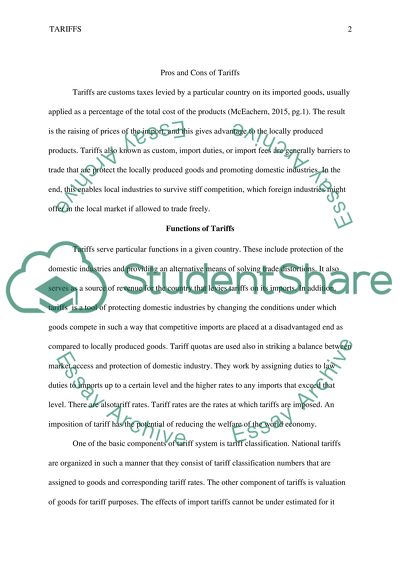Cite this document
(“Pros and Cons of Tariffs Essay Example | Topics and Well Written Essays - 1750 words”, n.d.)
Pros and Cons of Tariffs Essay Example | Topics and Well Written Essays - 1750 words. Retrieved from https://studentshare.org/macro-microeconomics/1700032-the-pros-cons-of-tariffs
Pros and Cons of Tariffs Essay Example | Topics and Well Written Essays - 1750 words. Retrieved from https://studentshare.org/macro-microeconomics/1700032-the-pros-cons-of-tariffs
(Pros and Cons of Tariffs Essay Example | Topics and Well Written Essays - 1750 Words)
Pros and Cons of Tariffs Essay Example | Topics and Well Written Essays - 1750 Words. https://studentshare.org/macro-microeconomics/1700032-the-pros-cons-of-tariffs.
Pros and Cons of Tariffs Essay Example | Topics and Well Written Essays - 1750 Words. https://studentshare.org/macro-microeconomics/1700032-the-pros-cons-of-tariffs.
“Pros and Cons of Tariffs Essay Example | Topics and Well Written Essays - 1750 Words”, n.d. https://studentshare.org/macro-microeconomics/1700032-the-pros-cons-of-tariffs.


